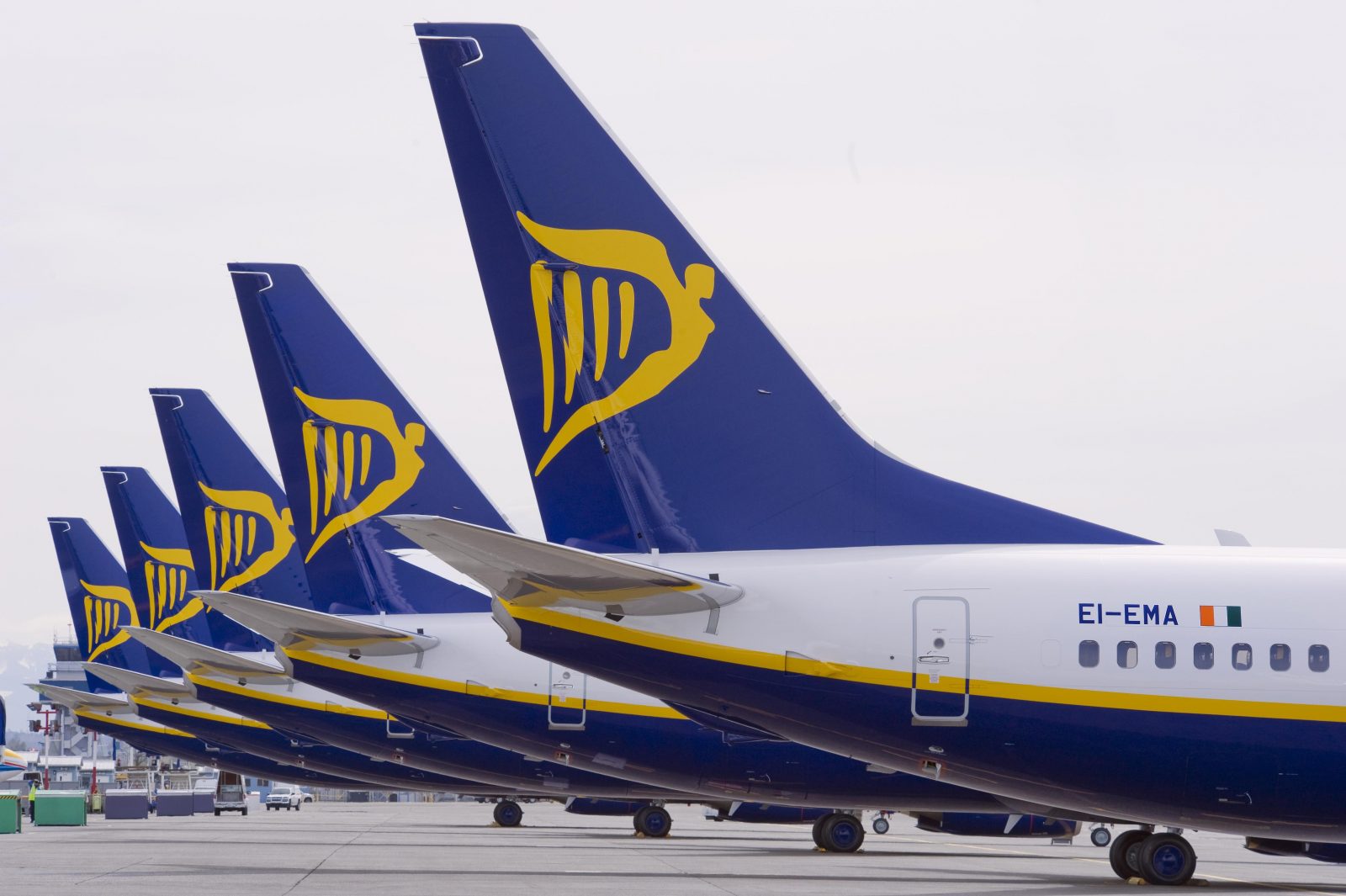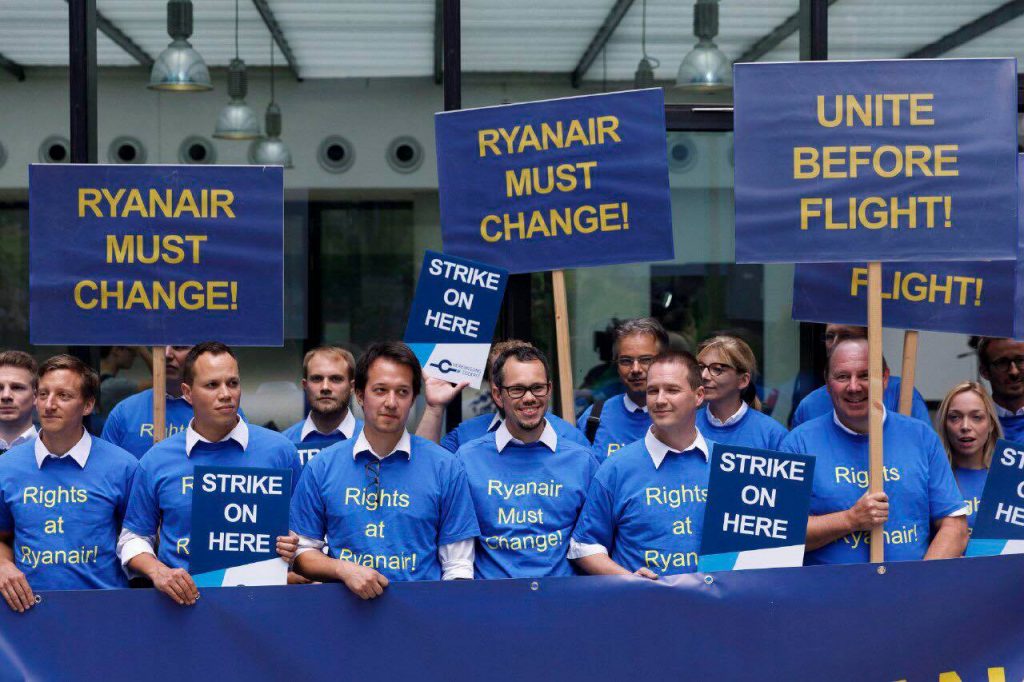
It’s been a year since Europe’s largest low-cost airline Ryanair faced its very first cabin crew strikes. The airline has come along way since first trying to face down workers who were fighting for better pay and working conditions but the International Federation of Transport Workers (ITF) claims much more still needs to be done.
It was during the busy Easter weekend in 2018 that Ryanair cabin crew first walked out in a long-running dispute with the airline’s management. The first time in Ryanair’s 30-year history the airline had ever experienced a cabin crew strike and just months after the Dublin-based carrier first recognised union representation for its workers.
Significant concessions have been won: Over 80% of Ryanair’s cabin crew and pilot communities now have union recognition agreements and more than half have won some form of collective bargaining agreement or compliance with local laws. It’s a major departure from Ryanair’s insistence that workers had to accept Irish employment contracts, governed under Irish law without any input on their conditions or remuneration.
But it hasn’t all been plain sailing. Old habits are hard to break and Ryanair has been accused of using “union busting” techniques to get its way. In the last month, Ryanair lost a court battle to sack cabin crew and pilots at a base in Eindhoven – critics claimed the airline sacked the crew because they threatened strike action.

Elsewhere, Polish cabin crew are fighting the airline over its insistence that they sign self-employment contracts. A technique that has been likened to “social dumping” and one that has bee criticised by the European Commission.
There’s also much concern that despite the airline’s outspoken chief executive Michael O’Leary taking on a new role from the day-to-day running of Ryanair, it still isn’t doing enough to overhaul its business practices to improve relations with employees. Unions say Ryanair needs a new management team that can deal with unions rather than an old guard who have always fought unionisation.
“There’s no doubt that progress has been made at Ryanair since the first strikes last year, but we shouldn’t underplay the immense work left to do,” explains Stephen Cotton, general secretary of the ITF.
“Despite the company’s announcement in 2017 that it would recognise unions, over two-thirds of the workforce have yet to feel the positive effects of proper collective bargaining,” he continued.
“Meanwhile, the airline seems intent on pursuing its traditional union-busting strategies where it thinks it can get away with poor practice.”
Meanwhile, Ryanair was recently named as one of Europe’s Top Ten polluters – While the fact Ryanair made the list is more testament to how massive the airline has become, unions and environmentalists are demanding the airline do more to improve its impact on the environment.
Ryanair claims its “Europe’s cleanest and greenest airline.”
Mateusz Maszczynski honed his skills as an international flight attendant at the most prominent airline in the Middle East and has been flying ever since... most recently for a well known European airline. Matt is passionate about the aviation industry and has become an expert in passenger experience and human-centric stories. Always keeping an ear close to the ground, Matt's industry insights, analysis and news coverage is frequently relied upon by some of the biggest names in journalism.







